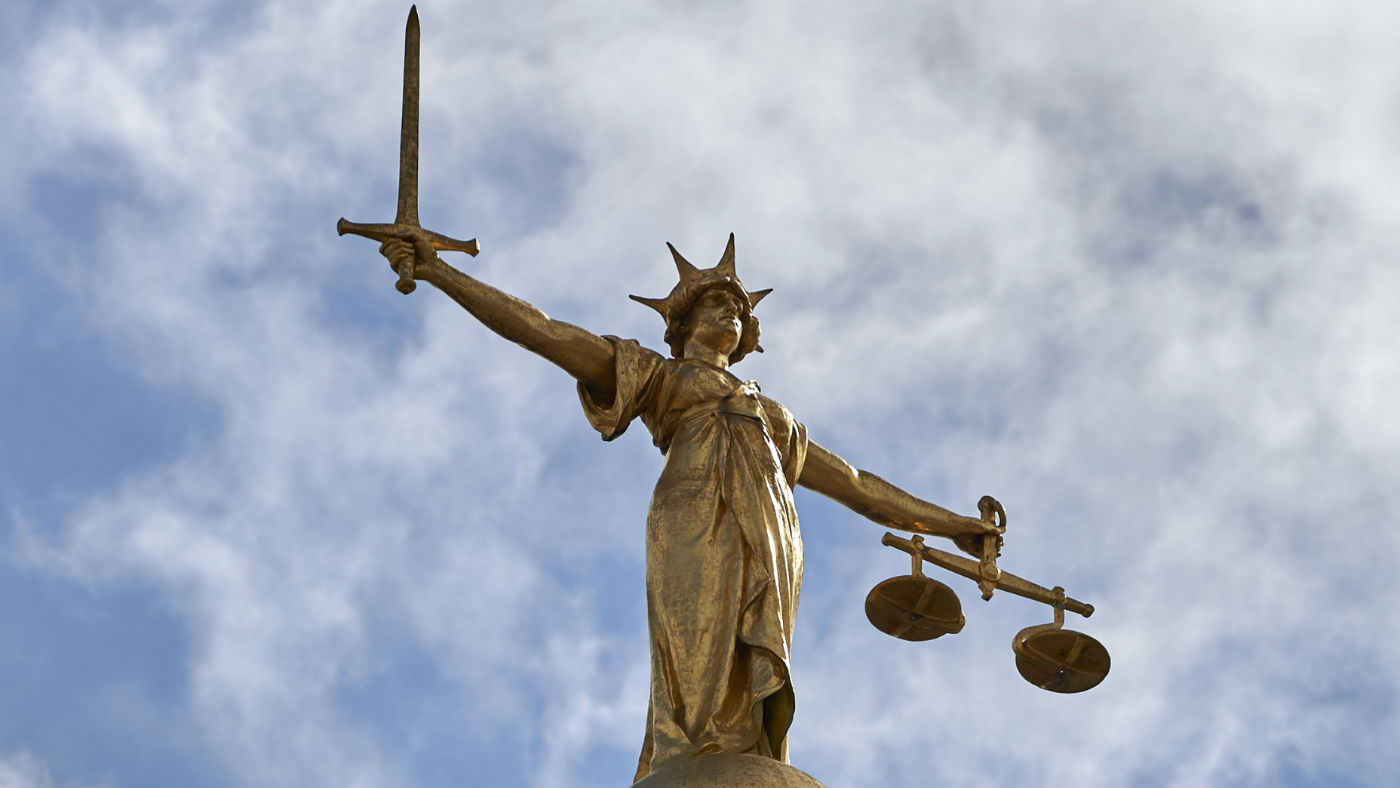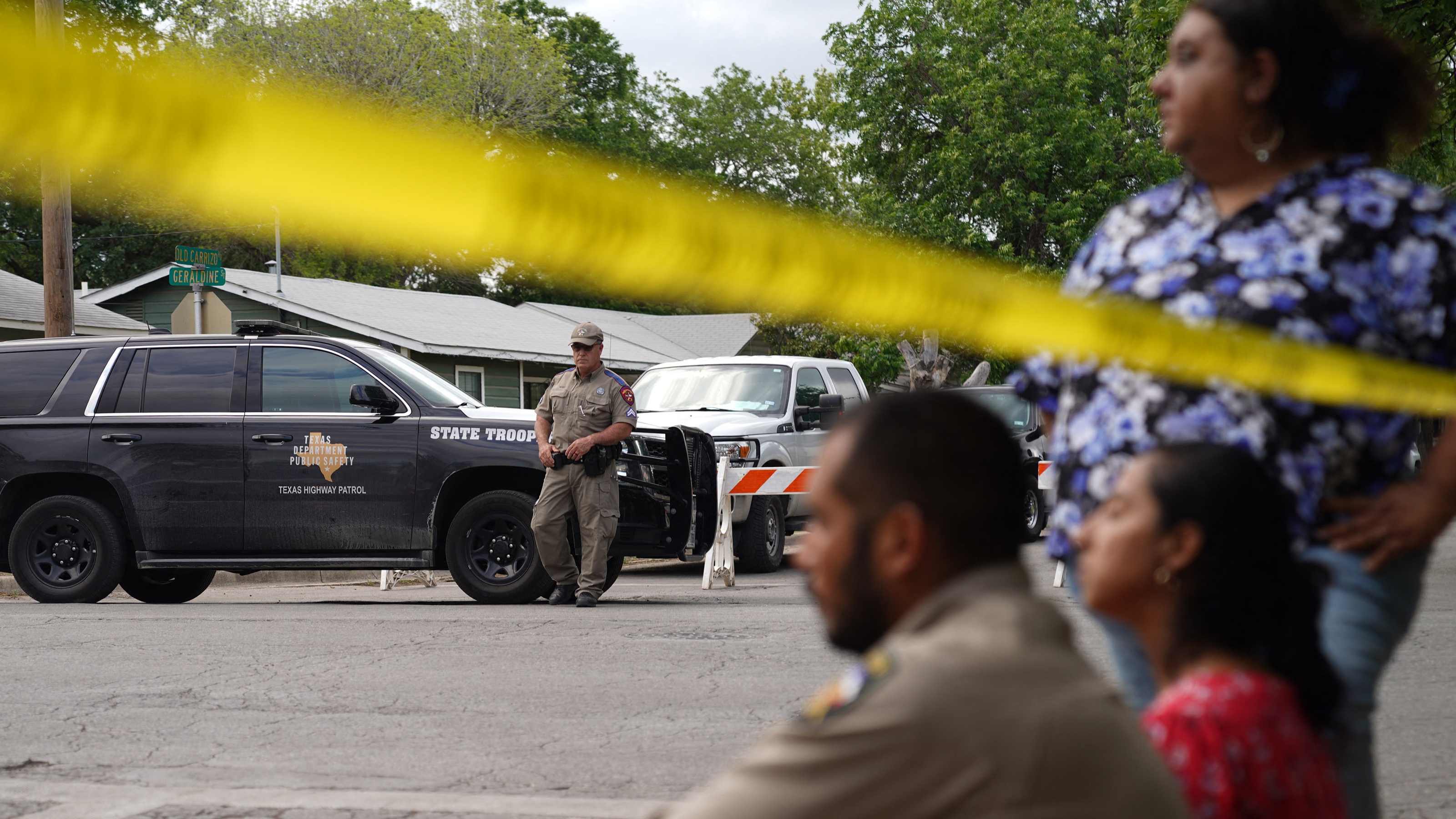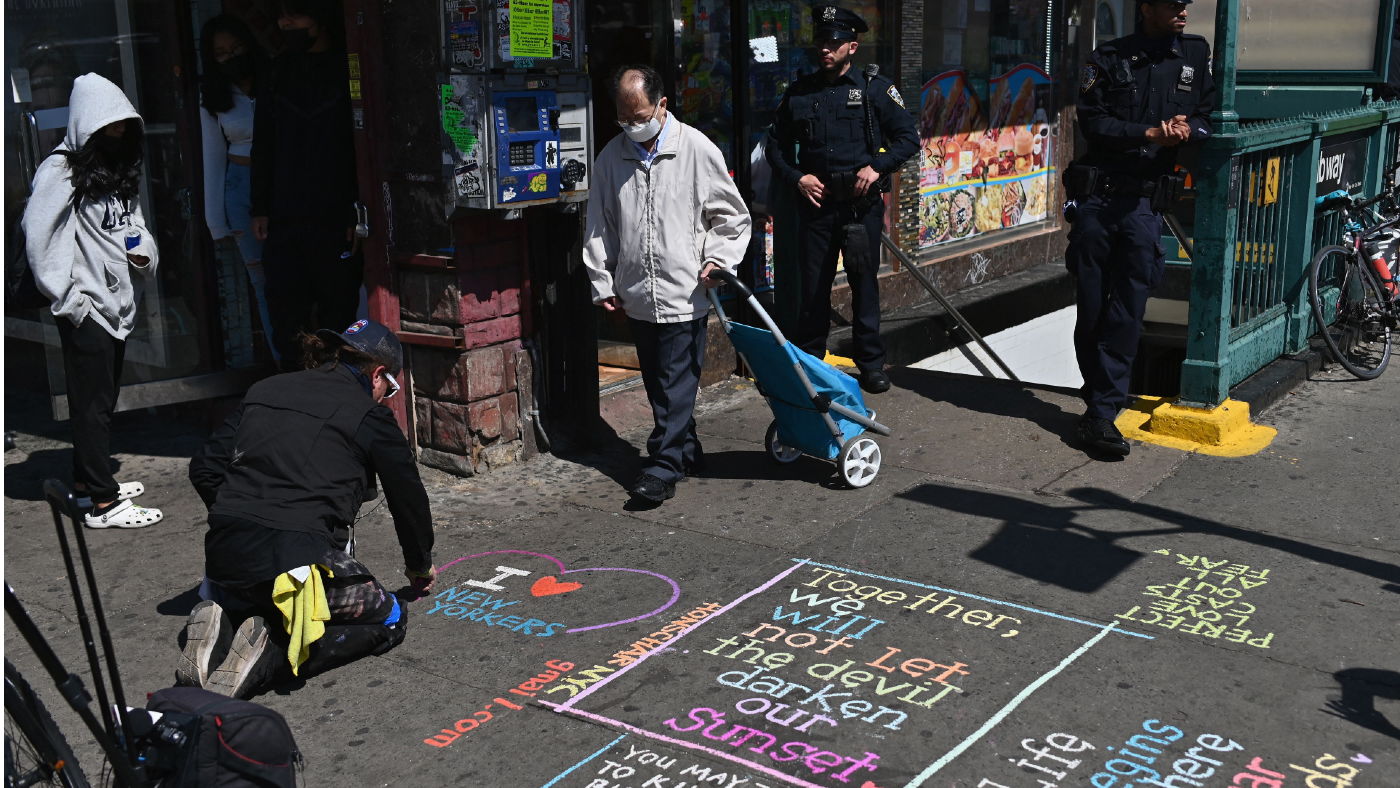Should you have to disclose a minor criminal record?
Supreme Court rules criminal records check system ‘disproportionate’

A free daily email with the biggest news stories of the day – and the best features from TheWeek.com
You are now subscribed
Your newsletter sign-up was successful
People convicted of minor offences might not have to disclose them in future, after the Supreme Court passed a landmark ruling on the criminal records check system.
Judges ruled that three people, who claimed their lives were blighted by past minor convictions, had their human rights violated by the way criminal records are disclosed.
The charity Unlock said the ruling stands to affect thousands of people with old and minor criminal records.
The Week
Escape your echo chamber. Get the facts behind the news, plus analysis from multiple perspectives.

Sign up for The Week's Free Newsletters
From our morning news briefing to a weekly Good News Newsletter, get the best of The Week delivered directly to your inbox.
From our morning news briefing to a weekly Good News Newsletter, get the best of The Week delivered directly to your inbox.
The government “will have to consider reform of the system” after it lost its appeal, said BBC legal affairs correspondent Clive Coleman.
Under the current system, known as the Disclosure and Barring Service (DBS), past offences, however minor, must be disclosed for the rest of a person's life when applying for certain jobs, such as when working with children, if they have more than one conviction.
Warnings and reprimands issued to young offenders, offences where the conviction or caution is serious, and offences resulting in a custodial sentence must also be disclosed.
Sky News notes “the person’s circumstances at the time of the offence is not taken into consideration”.
A free daily email with the biggest news stories of the day – and the best features from TheWeek.com
“Critics have condemned the system as being too harsh, preventing people with minor past convictions from applying for jobs and moving on with their lives,” says The Guardian.
Christopher Stacey, co-director of Unlock, says criminal checks leave many people “unnecessarily anchored to their past”.
Speaking to the BBC, he claimed that in the past five years alone more than a million youth criminal records were disclosed on standard or enhanced DBS checks that related to offences from more than 30 years ago.
The Supreme Court described existing criminal record rules as “disproportionate” on two counts: the way they required disclosure for multiple convictions, even if they were minor, and the way they failed to distinguish between convictions and warnings or reprimands issued to juveniles.
One of the people who brought the case, who cannot be named for legal reasons, was convicted in 1999 after shoplifting a 99p book while suffering from undiagnosed schizophrenia and then failing to answer bail.
In the intervening 20 years she has committed no crimes and has aimed to work as a teaching assistant “but current rules mean she has to reveal her two convictions when applying - forcing her to reveal details of her medical history”, says Sky News.
Dr Beth Weaver, a senior lecturer at Strathclyde University, told STV News: “Around 38% of men and 9% of women in Scotland have at least one criminal conviction, so this issue affects a large number of people.”
Around 75% of employers admit to rejecting applications that refer to any kind of conviction.
Yet a study by Virgin Trains and the charity Business in the Community published this month warned some candidates with no record may pose a greater risk of offending.
Jobseekers are also put off applying for work if they have to declare any convictions upfront, said the report, which called on companies to find more supportive ways to discuss potential recruits‘ criminal backgrounds.
Elliott Goat is a freelance writer at The Week Digital. A winner of The Independent's Wyn Harness Award, he has been a journalist for over a decade with a focus on human rights, disinformation and elections. He is co-founder and director of Brussels-based investigative NGO Unhack Democracy, which works to support electoral integrity across Europe. A Winston Churchill Memorial Trust Fellow focusing on unions and the Future of Work, Elliott is a founding member of the RSA's Good Work Guild and a contributor to the International State Crime Initiative, an interdisciplinary forum for research, reportage and training on state violence and corruption.
-
 6 exquisite homes with vast acreage
6 exquisite homes with vast acreageFeature Featuring an off-the-grid contemporary home in New Mexico and lakefront farmhouse in Massachusetts
-
 Film reviews: ‘Wuthering Heights,’ ‘Good Luck, Have Fun, Don’t Die,’ and ‘Sirat’
Film reviews: ‘Wuthering Heights,’ ‘Good Luck, Have Fun, Don’t Die,’ and ‘Sirat’Feature An inconvenient love torments a would-be couple, a gonzo time traveler seeks to save humanity from AI, and a father’s desperate search goes deeply sideways
-
 Political cartoons for February 16
Political cartoons for February 16Cartoons Monday’s political cartoons include President's Day, a valentine from the Epstein files, and more
-
 What we know about the Copenhagen mall shooting
What we know about the Copenhagen mall shootingSpeed Read Lone gunman had mental health issues and not thought to have terror motive, police say
-
 Texas school shooting: parents turn anger on police
Texas school shooting: parents turn anger on policeSpeed Read Officers had to be urged to enter building where gunman killed 21 people
-
 DJ Tim Westwood denies multiple sexual misconduct allegations
DJ Tim Westwood denies multiple sexual misconduct allegationsSpeed Read At least seven women accuse the radio and TV presenter of predatory behaviour dating back three decades
-
 What happened to Katie Kenyon?
What happened to Katie Kenyon?Speed Read Man charged as police search for missing 33-year-old last seen getting into van
-
 Brooklyn subway shooting: exploring New York’s ‘steep decline in law and order’
Brooklyn subway shooting: exploring New York’s ‘steep decline in law and order’Speed Read Last week, a gunman set off smoke bombs and opened fire on a rush-hour train in the city
-
 How the Capitol attack investigation is splitting the Republicans
How the Capitol attack investigation is splitting the RepublicansSpeed Read Vote to censure two Republican representatives has revealed deep divisions within party
-
 Is sentencing a Nazi sympathiser to read Shakespeare an appropriate punishment?
Is sentencing a Nazi sympathiser to read Shakespeare an appropriate punishment?Speed Read Judge seemed to think introducing student ‘to high culture’ would ‘magically make him a better person’ said The Daily Telegraph
-
 Sarah Everard’s murder: a national reckoning?
Sarah Everard’s murder: a national reckoning?Speed Read Wayne Couzen’s guilty plea doesn’t ‘tidy away the reality of sexual violence’